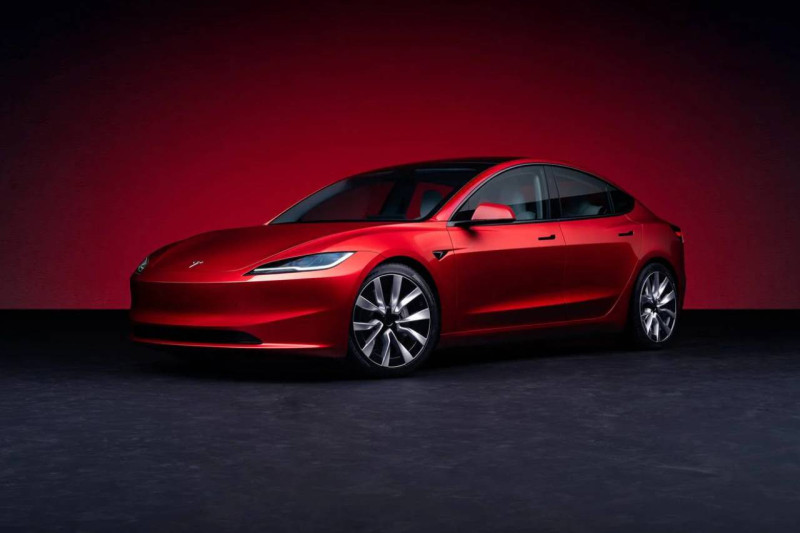
Tesla rewards Elon Musk’s reality-distortion field
- by The Verge
- Nov 07, 2025
- 0 Comments
- 0 Likes Flag 0 Of 5

Transportation editor
Posts from this author will be added to your daily email digest and your homepage feed.
Follow See All by Andrew J. Hawkins
is transportation editor with 10+ years of experience who covers EVs, public transportation, and aviation. His work has appeared in The New York Daily News and City & State.
The most striking moment of Tesla’s annual shareholder meeting Thursday wasn’t when Elon Musk won a impossible sounding pay package worth nearly $1 trillion. That was a foregone conclusion, given Musk’s popularity with retail shareholders and his ability to vote his own extensive holdings.
To me, the more illuminating moment was when the gathered crowd of shareholders, many of them wearing Tesla themed gear and grooving out to the company’s signature lo-fi beats, booed a proposal by New York State Comptroller Thomas DiNapoli to repeal a new bylaw that essentially makes it impossible for regular shareholders to sue the company.
Tesla’s board recommended against voting for the measure, as they do with nearly every accountability measure proposed over the years. Time and time again, pension fund managers or human rights advocates or even individual investors present shareholders with the opportunity to do the bare minimum to rein in the company’s worst excesses, like trying to prevent child labor exploitation in its supply chain or integrate sustainability metrics in executive pay. And time and time again, shareholders side with the company’s board — or more accurately, with Musk — and reject them.
Time and time again, shareholders side with the company’s board — or more accurately, with Musk
They joyfully vote to dilute their own holdings and reward Musk’s reality-distorting vision for Tesla, one that ignores the company’s current challenges and instead embraces a future defined by “sustainable abundance.” These over-the-top promises include personally owned self-driving cars, robot helpers in every home, and an endless supply of clean energy.
“That’s what I mean by sustainable abundance,” he said. “Is that people can have whatever they want, have all their needs met, but we still keep all of the natural beauty that we want. If somebody can think of a better future, I’m all ears.”
That all sounds really nice, but it isn’t exactly a plan to turnaround Tesla’s declining car sales or counteract vanishing government subsidies for clean energy purchases or win over skeptical regulators who have serious questions about the company’s autonomous vehicle technology. Nor does it acknowledge the damage that Musk himself has done to Tesla’s brand by bankrolling an administration that has kneecapped the clean energy economy, or by then heading up that administration’s effort to fire thousands of federal workers and cancel billions of dollars in humanitarian aid, or by welcoming back white supremacists to his social media platform.
These inconvenient truths rarely pierce the bubble of Tesla’s shareholder meetings. Which is why it was so striking to hear the response to DiNapoli’s warnings that investors were about to make a major mistake in handing over so much control to the mercurial billionaire.
These inconvenient truths rarely pierce the bubble of Tesla’s shareholder meetings.
“We see a board that lacks true independence,” DiNapoli said in a recorded message. “The board has allowed our CEO to divide his attention among multiple outside ventures and then offered a pay proposal that could hand him a trillion dollar windfall and even more unchecked power. These are not isolated issues.”
The boos that greeted this proposal were a sign that some Tesla shareholders would welcome the opportunity to deprive themselves of their own voting rights. DiNapoli was recommending repealing the bylaw that requires shareholders to own at least 3 percent of the company’s stock — worth an estimated $44 billion based on its current value — to file a derivative lawsuit. Tesla’s board says this was to prevent frivolous lawsuits, but DiNapoli argued that the courts already have the power to dismiss meritless cases.
Musk’s current compensation package, valued at more than $50 billion, was invalidated by a Delaware court last year after a judge found that Tesla’s board lacked sufficient independence from the billionaire CEO. Shareholders had voted twice to approve the hefty compensation, but the judge still upheld her ruling blocking it. Tesla has appealed the decision to the Delaware Supreme Court. The ruling spurred Musk to engineer a proposal to move Tesla’s legal home from Delaware to Texas, which shareholders also approved.
Shareholders have bought into the propaganda that what’s good for Musk is good for them. After all, his new performance package is contingent on expanding Tesla’s market value to $8.5 trillion over 10 years. And that should net them a serious windfall, no?
Not exactly. As Reuters reported recently, Musk would receive 200 million shares for doing nothing at all. Even hitting just two of the easiest targets, along with modest stock growth, would net Musk $26 billion in compensation.
This willingness by shareholders throw good money after bad has long defined the Tesla experience. But then again, Tesla’s value has long been divorced from the fundamentals of its business. It’s the original meme stock, coasting on investor enthusiasm and Musk’s ability to conjure up utopian visions of the future. Even as the company appears headed to its second consecutive year of declining sales, the share price is up over 10 percent for the year. Reality distortion, it would seem, is baked into the price by now.
Follow topics and authors from this story to see more like this in your personalized homepage feed and to receive email updates.
Andrew J. Hawkins
Please first to comment
Related Post
Stay Connected
Tweets by elonmuskTo get the latest tweets please make sure you are logged in on X on this browser.






 Energy
Energy

















